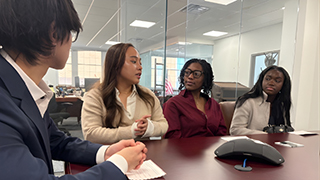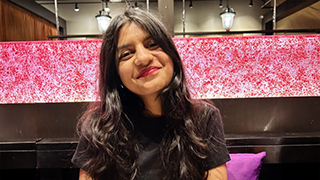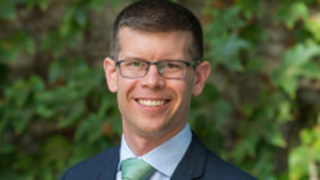Seton Hall Students Are More Engaged Than Peers According to NSSE Survey
Wednesday, November 12, 2025
 Seton Hall University students reported higher levels of engagement than their peers
in key areas, including dialogue across differences and participation in hands-on
learning experiences, according to results from the 2025 National Survey of Student
Engagement.
Seton Hall University students reported higher levels of engagement than their peers
in key areas, including dialogue across differences and participation in hands-on
learning experiences, according to results from the 2025 National Survey of Student
Engagement.
The annual National Survey of Student Engagement (NSSE) survey, which surveys first-year and senior undergraduates nationwide, measures how students participate in educational activities known to foster learning and development. It focuses on areas including academic challenge, learning with peers, experiences with faculty, campus environment and high-impact practices. Colleges use NSSE results to gauge student experience and benchmark against similar institutions.
In the 2025 survey, Seton Hall excelled in fostering inclusive dialogue. First-year students reported significantly more frequent discussions with people of races or ethnicities other than their own, compared to students at similar Carnegie peer institutions. Likewise, Seton Hall seniors were far more likely to engage in conversations with people holding different political views than seniors at peer schools. Both results were well above peer averages, suggesting a campus culture that actively encourages students to connect across racial, cultural and ideological lines.
“At Seton Hall, we focus on student belonging, inclusion and growth,” said Monica Burnette, vice president of student services. “It is wonderful to see our students engaging so often with peers from different backgrounds. That reflects a welcoming environment where every student can learn and thrive.” The University’s commitment to dialogue and inclusion is affirmed in the Statement on Academic Freedom Beyond the Classroom, which reaffirms the importance of free expression and respectful discourse. The strong survey findings on frequent conversations across racial and political differences demonstrate that students feel empowered to exchange ideas in line with that commitment.
The NSSE results also highlighted high levels of experiential learning at Seton Hall. High-Impact Practices (HIPs) are immersive learning opportunities, such as internships, faculty-mentored research, service projects or study abroad, which are an area of strength in the reported data. Students reported participating in at least two HIPs, with one typically during their first year. That level of involvement exceeds comparable institutions and underscores the University’s emphasis on transformational student experiences.
This focus on transformational learning experiences is a cornerstone of Seton Hall’s new 2025–30 Strategic Plan, Inspiring Great Minds to Greater Purpose. Pillar 1 of the plan, Transformational Student Experience (TiLE), aims to ensure that all students benefit from high-quality transformational learning experiences, which integrate classroom learning with practical experience. The second pillar of the plan, Embracing Community, Catholic Mission and Culture, centers on fostering a welcoming community that respects the dignity of every person and encourages engagement across cultures and perspectives.
Connie Beale, Seton Hall’s executive director of institutional research, said that the NSSE data provides valuable feedback for the University. “We take an evidence-based approach to enhancing the student experience,” Beale said. “NSSE gives us valuable data on how our students are learning and connecting. The fact that our students report higher engagement than our peers on several measures is a strong indication that our initiatives are making a positive impact. This data shows us what is working and where we can continue to improve.”
As Seton Hall implements its strategic plan, the NSSE survey results serve as an affirmation of the University's commitment to the student experience. Enhancing the transformational student experience will improve academic outcomes.
Categories: Campus Life






